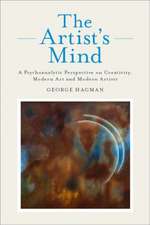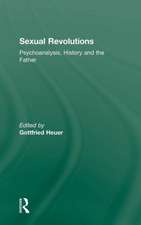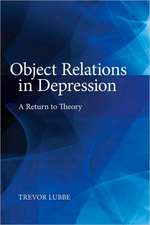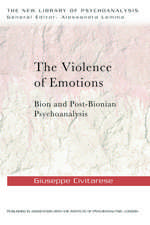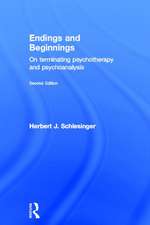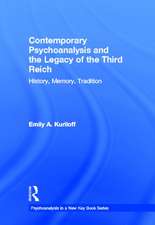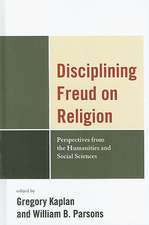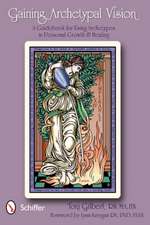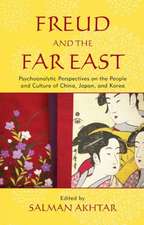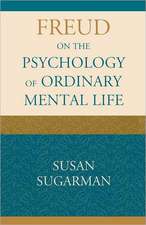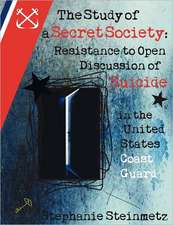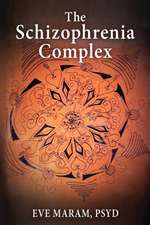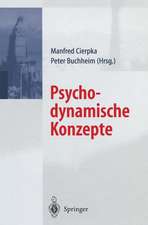Individuation for Adult Replacement Children: Ways of Coming into Being
Autor Kristina E. Schellinskien Limba Engleză Paperback – 18 oct 2019
| Toate formatele și edițiile | Preț | Express |
|---|---|---|
| Paperback (1) | 244.87 lei 3-5 săpt. | +18.39 lei 5-11 zile |
| Taylor & Francis – 18 oct 2019 | 244.87 lei 3-5 săpt. | +18.39 lei 5-11 zile |
| Hardback (1) | 1035.42 lei 6-8 săpt. | |
| Taylor & Francis – 8 oct 2019 | 1035.42 lei 6-8 săpt. |
Preț: 244.87 lei
Preț vechi: 257.75 lei
-5% Nou
46.86€ • 48.74$ • 38.69£
Carte disponibilă
Livrare economică 24 martie-07 aprilie
Livrare express 08-14 martie pentru 28.38 lei
Specificații
ISBN-10: 1138824887
Pagini: 252
Ilustrații: 16 Illustrations, black and white
Dimensiuni: 156 x 234 x 17 mm
Greutate: 0.37 kg
Ediția:1
Editura: Taylor & Francis
Colecția Routledge
Locul publicării:Oxford, United Kingdom
Public țintă
Postgraduate, Professional, and Professional Practice & DevelopmentCuprins
Foreword by Murray Stein; Foreword by Albert C. Cain; Prologue by Kristina E. Schellinski; Chapter 1: Introduction; Chapter 2: Discovery of the Replacement Child Condition; Chapter 3: Famous Replacement Children in Psychoanalysis; Chapter 4: In the Beginning: Early Bonding, Attachment and Relation to Self; Chapter 5: Identity ¿ a Question of Life or Death?; Chapter 6: Working through Grief; Chapter 7: Different Strands of Guilt in the Replacement Child; Chapter 8: Confronting Difficult Aspects of Shadow; Chapter 9: From Missing Other Towards Union with Self; Chapter 10: Treatment, Prevention and Transgenerational Transmission; Chapter 11: Concluding Reflections on Transformation
Notă biografică
Kristina E. Schellinski, M.A., is a supervising and teaching analyst with the C. G. Jung Institute Zürich, Küsnacht, and ISAP, the International School of Analytical Psychology, Zürich, Switzerland. She works with adults in private practice in Geneva and is a lecturer and consultant of the Geneva University Hospital (HUG) Psychiatry Department, author of professional articles and speaker at international conferences. From 1983 to 1998, she worked for the United Nations Children¿s Fund (UNICEF) in New York and Geneva. Her website can be found at kristina-schellinski.com and at adult-replacement-children.com.
Recenzii
"Individuation for Replacement Children offers the inspiring message that the truth is different, that the center of the self is a precious and unique being who one should become and identify with. This is the essence of ‘becoming who you are’" – Murray Stein, from the foreword; Ph.D., Past President of IAAP; author of Minding the Self
"An outstanding book that reveals the depth psychology of the replacement child, an extraordinary work." - Henry Abramovitch, Professor at the Department of Medical Education, Tel Aviv University; founding President of Israel Institute of Jungian Psychology; author of Brothers & Sisters, Myth and Reality
"In this remarkable book Kristina Schellinski brings forward an often overlooked but powerful influence on the development of identity for those who have served consciously or unconsciously as a ‘replacement child.’ The widespread nature of the phenomena has rarely been examined in the psychotherapeutic literature. We are most fortunate to have this penetrating exploration, the work of a lifetime, put forward in such a cogent and useful manner." - Joe Cambray, Ph.D.; President/CEO, Pacifica Graduate Institute; Jungian analyst
"As a replacement child myself, I am extremely grateful for Kristina E. Schellinski’s book, Individuation for Adult Replacement Children: Ways of Coming into Being. This comprehensive and enlightening look at what it means to be a replacement child, treatments and prevention is a valuable contribution to bringing about awareness to this sometimes overlooked condition. This amazing book is a unique blend of science, spirit and soul. It is a must-read for therapists who treat replacement children." - Judy L. Mandel, author of the New York Times bestseller, Replacement Child
"Deeply insightful and well researched, this book is a veritable gold mine of information that enables a thorough comprehension of the replacement child syndrome. Schellinski skillfully integrates an understanding born of personal experience, training as a psychoanalyst and powerful case histories to illustrate this widespread, but greatly under exposed topic. Individuation for Adult Replacement Children: Ways of Coming into Being imports a deep exploration into the experience of the replacement child, its far-reaching effects and how this experience can be the root of numerous emotional issues. Everyone will benefit from this book. It is an absolute ‘must read’ for replacement children, their families and all healthcare professionals!" - Rita Battat Silverman, co-author of Replacement Children: The Unconscious Script
"Coming into Being is an important and comprehensive book about the replacement child condition – a condition that often remains unrecognized and therefore, untreated. Many are not aware of the replacement child condition and without that understanding the diagnosis is missed, and a patient’s profoundly felt pain misunderstood and labeled as some other psychological disorder.
The replacement child is the story of one person living life for two, for themselves and for the other, the one they are here to replace. Kristina Schellinski knows this topic inside and out, both from the perspective of being a replacement child herself and as a psychoanalyst and psychotherapist trained at the esteemed C. G. Jung Institute. This book represents 20 years of investigation and research to uncover the psychological and emotional aspects of the replacement child condition. Schellinski’s work over many years in clinical practice with adult replacement children promises that there is a way toward self-discovery and transformation.
Much has been written over the last several decades and awareness has increased about the replacement child, but it is Schellinski’s hope and goal ‘to prevent the making’ of a replacement child. To that end, she has written a heart-felt and deeply compassionate book for adult replacement children, parents, and therapists, it is every person’s right to shine in their own light, to be in their own right." – Abigail Brenner, M.D., psychiatrist and writer; columnist of Psychology Today, USA
"This book draws attention to the fate of the ‘replaced child’, an important subject in the light of a multi-generational perspective. In this book, Schellinski allows all replacement children who are not yet visible in their own being to be granted great visibility in themselves. From the many touching examples, it becomes clear again and again that the mourning for a loss child should never be compensated by a substitute child; a ‘replaced child’" - Prof. Dr. Verena Kast, President, Curatorium C.G. Jung Institut Zürich, Küsnacht
"Kristina Schellinski’s book is the work of a lifetime—finely written, beautifully evocative, and psychologically illuminating. It is of great value not just for its elegant study of the replacement child syndrome but for its witnessing the red, the black, and the gold of any deep awakening of the psyche." - Thomas Singer, M.D. Jungian psychoanalyst and psychiatrist, C.G. Jung Institute San Francisco, USA
"Schellinski’s work is an intriguing courageous inquiry into the archetypal forces of dying and becoming that replacement children have to wrestle with. Born out of own experience, and meticulously researched, she delineates the transformative process of Coming into Being for finding a life of one's own. Providing invaluable insights, rich resources and vivid case material for a deeper understanding of identity issues, the author honors the power of spirit and soul in transcending the trauma of the replacement child condition. An homage to analytical psychology and an illuminating read for clients and therapists alike." - Ursula Wirtz, PhD, supervisor and training analyst; author of Trauma and Beyond: The Mystery of Transformation
"Kristina Schellinski’s in depth study opens up a new psychological paradigm of the lived experience of being a replacement child as an adult across a broad spectrum of human experience. Basing her investigations on the work of past analytic clinical and theoretical experience, many of whom derived their understanding from studies of Holocaust survivors, Schellinski opens up her study to a larger population of those with the condition (she stresses that it is not a pathology, although may be possibly a latent one).
A major theme of the book revolves around the archetypal and developmental nature of the self, particularly relevant to current discussions about the self and its defences. She covers with convincing examples from her own history and also her clinical practice the areas of attachment, relational capacity, identify of self, including the question of true and false self, as well as my concept of the ‘as if’ personality, grief, survivor’s guilt, and the shadow.
Survival with an intact, viable and authentic ego-self function, is essential and can be found through a good enough analytic relationship as well as in certain other supportive situations. A major focus will reside in the severity, identification, relationship and treatment of, such defences.
This is definitely a go-to clinical and theoretical study, to find understanding of the ubiquity of the condition, and ways that the clinician can approach treatment. It is written in a transparent, easily absorbable style. Kristina Schellinski has offered a comprehensive view of a particular human condition which may touch each one of us directly, or those close to us. It behoves us to pay attention to the understanding she has gleaned." - Hester McFarland Solomon; President, BJAA; Past President, IAAP; author, The Self in Transformation
"Schellinski’s Individuation for Adult Replacement Children. Ways of Coming into Being is a rich analytical exploration - on the border between existential and clinical - of this field." - Andrea Sabbadini, Fellow, British Psychoanalytical Society
"Schellinski has taken many years of research to develop her ideas and the result is a thoughtful and well-organized text. It is well-written, accessibly but also scholarly, drawing on relevant research material and the ideas of other authors" - Jan Wiener, Society of Analytical Psychology
Descriere
Kristina E. Schellinski uncovers the hidden trauma of the replacement child - born into an atmosphere of grief to substitute for a lost sibling or other person - and helps adult replacement children discover the uniqueness of their self.
Schellinski combines Jungian theory with research from over 20 years of clinical practice to demonstrate how adult replacement children who suffer from physical and psychological distress can rediscover the essence of their being in the transformative process of individuation. Theoretical yet practical, the book discusses core concepts of analytical psychology, psychoanalysis and attachment theory, and detailed case studies address grief, guilt, identity formation, relational challenges and shadow aspects. Schellinski explores how Jung's birth after three dead children impacted his search for self and his theory and discloses her own personal experience. On treatment and prevention, she argues that by recognising elements of the replacement child condition, clinicians can facilitate acceptance, compassion and healing, and help reduce transgenerational transmission.
This book is an indispensable tool for clinicians, analytical psychologists, psychodynamic psychotherapists and those in other medical professions, and will be of great interest to academics and readers interested in Jungian studies and existential questions. It offers adult replacement children and their families hope for a psychological rebirth.



